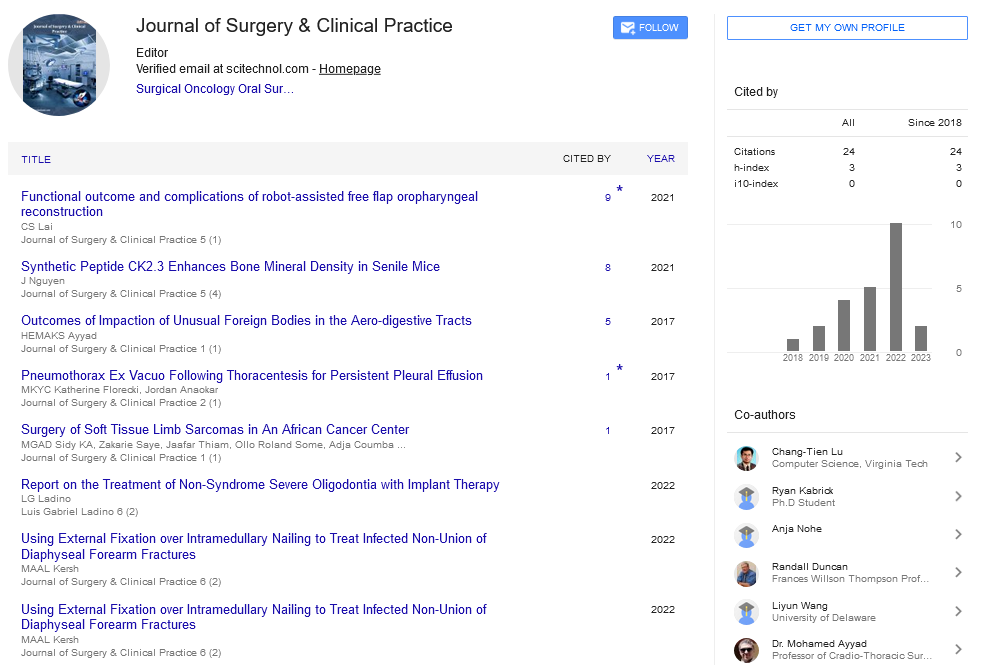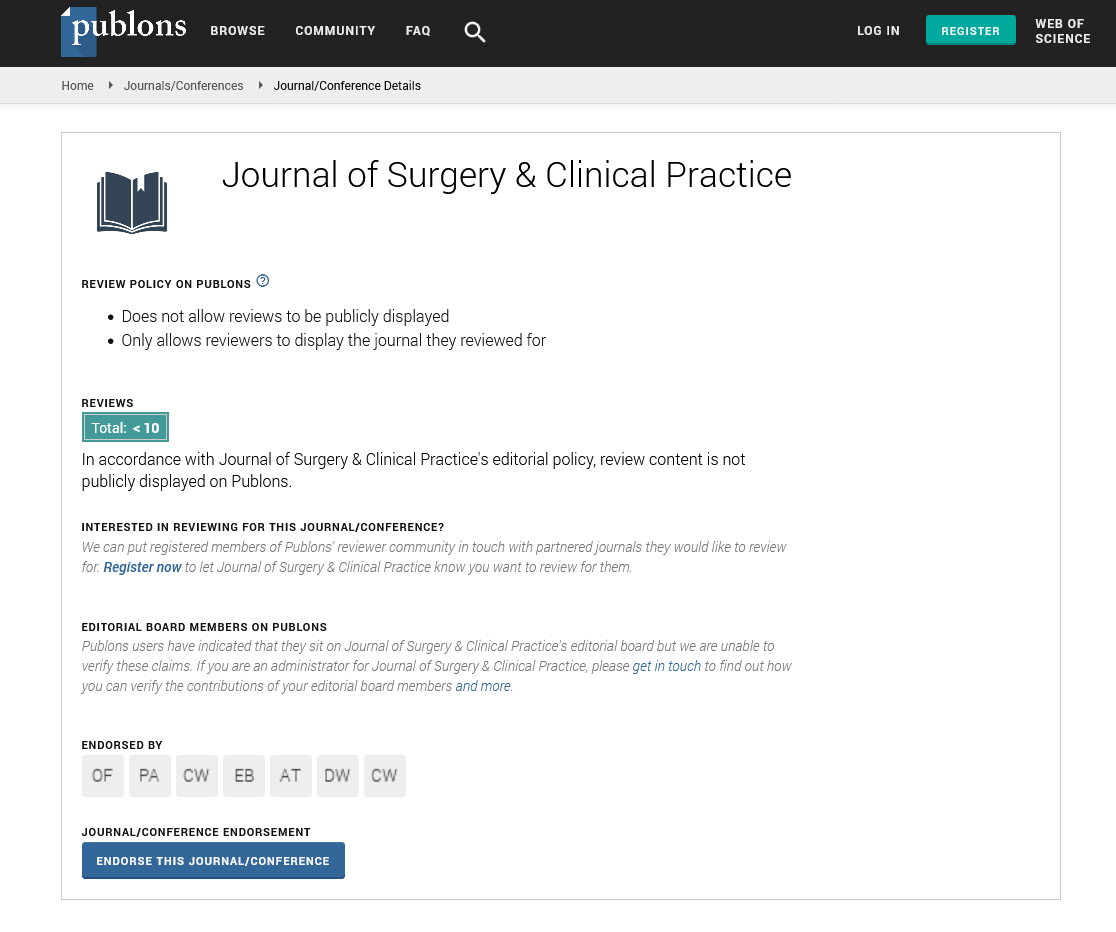Perioperative use of NSAID might prevent early relapses in breast and other cancers: An upstream approach
Michael Retsky
Harvard TH Chan School of Public Health, USA
: J Surg Clin Pract
Abstract
A bimodal pattern of hazard of relapse among early stage breast cancer patients has been identified in multiple databases from US, Europe and Asia. We are studying these data to determine if this can lead to new ideas on how to prevent relapse in breast cancer. Using computer simulation and access to a very high quality database from Milan for patients treated with mastectomy only, we proposed that relapses within 3 years of surgery are stimulated somehow by the surgical procedure. Most relapses in breast cancer are in this early category. Retrospective data from a Brussels anesthesiology group suggests a plausible mechanism. Use of ketorolac, a common NSAID analgesic used in surgery was associated with far superior disease-free survival in the first 5 years after surgery. The expected prominent early relapse events in months 9-18 are reduced 5-fold. Transient systemic inflammation accompanying surgery (identified by IL-6 in serum) could facilitate angiogenesis of dormant micrometastases, proliferation of dormant single cells, and seeding of circulating cancer stem cells (perhaps in part released from bone marrow) resulting in early relapse and could have been effectively blocked by the perioperative anti-inflammatory agent. Apparently the metastatic process is amplified 100 fold during the week post surgery. If this observation holds up to further scrutiny, it could mean that the simple use of this safe, inexpensive and effective anti-inflammatory agent at surgery might eliminate early relapses. Similar bimodal patterns have been identified in other cancers suggesting a general effect. Based on writings of Galen and Celsus, such activation of distant metastasis after surgery was known 2000 years but somehow got overlooked.
Biography
E-mail: michael.retsky@gmail.com
 Spanish
Spanish  Chinese
Chinese  Russian
Russian  German
German  French
French  Japanese
Japanese  Portuguese
Portuguese  Hindi
Hindi 
